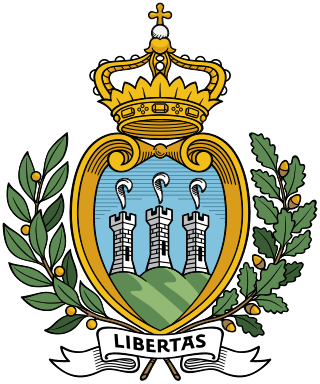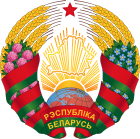
Belarus elects on national level a head of state—the president—and a legislature. The president is elected for a five-year term by the people. The National Assembly has two chambers. The House of Representatives has 110 members elected in single-seat constituencies elected for a four-year term. The Council of the Republic has 64 members, 56 members indirectly elected and eight members appointed by the president.

General elections were held in Denmark on 21 September 1971 and in the Faroe Islands on 5 October. The Social Democratic Party remained the largest in the Folketing, with 70 of the 179 seats. Voter turnout was 87% in Denmark proper, 57% in the Faroe Islands and 52% in Greenland.

A four-question referendum was held in Belarus on 14 May 1995, alongside parliamentary elections. The four issues were the possibility of giving the Russian language equal status with Belarusian, whether new national symbols should be adopted, whether there should be economic integration with Russia and changes to the constitution that would allow early elections if Parliament systematically violated the constitution. According to official results, all four were approved by at least three-quarters of voters, with a turnout of 64.8%.

A seven-question referendum was held in Belarus on 24 November 1996. Four questions were put forward by Alexander Lukashenko, the president of Belarus, on changing the date of the country's independence day, amending the constitution of Belarus, changing laws on the sale of land and the abolition of the death penalty. The Supreme Council put forward three questions on constitutional amendments by the Communist and Agrarian factions, local elections and the national finances.

A referendum on allowing President Lukashenko to stand in further elections was held in Belarus on 17 October 2004, alongside parliamentary elections. Lukashenko was nearing the end of his constitutionally-limited two terms, and the change would allow him to run for a third term.

Parliamentary elections were held in Russia on 12 December 1993. They were the first parliamentary elections in post-Soviet Russia and the only time to the Federation Council, with future members appointed by provincial legislatures and governors.

Presidential elections were held in Belarus on 23 June 1994, with a second round on 10 July. They were the first national elections held in Belarus since the country seceded from the Soviet Union three years earlier. The result was an overwhelming victory for Alexander Lukashenko, who received 81% of the vote in the second round. Voter turnout was 79% in the first round and 71% in the second.

Parliamentary elections were held in Belarus on 15 October 2000, with further rounds of voting on 29 October, 18 March and 1 April. The vast majority of successful candidates, 94 of 110, were independents. Voter turnout was reported to be 61.08% in the first round.

The Belarusian Socialist Party was a political party in Belarus.

Parliamentary elections were held in Andorra on 9 December 1981, with a second round of voting on 16 December. Local elections were held on the same day. Following the elections, Òscar Ribas Reig became the country's first Prime Minister.

Parliamentary elections were held in Andorra on 12 and 19 December 1985. As political parties were not legalised until 1993, all candidates ran as independents. Following the election, Josep Pintat-Solans remained Prime Minister.

Parliamentary elections were held in Andorra on 10 December 1989, with a second round of voting on 17 December. Following the elections, Òscar Ribas Reig became Prime Minister, elected on 12 January 1990 by a vote of 23−5.

Parliamentary elections were held in Andorra on 5 April 1992, with a second round of voting on 12 April. Following the elections, Òscar Ribas Reig remained Prime Minister.

Parliamentary elections were held in Belarus on 23 September 2012. At stake were the 110 seats in the House of Representatives, the lower house of the National Assembly of Belarus.

General elections were held in Italy on 20 November 1870, with a second round of voting on 27 November. They were a snap election, called by Prime Minister Giovanni Lanza to take advantage by the Capture of Rome and to give parliamentary representation to the future capital of Italy.

A referendum on the electoral law was held in San Marino on 3 July 2005. Voters were asked four questions on changes to the electoral law and electoral system. Although all four were approved by a majority of those voting, voter turnout was just 21.7%, meaning that the quorum of 32% of registered voters (10,143) was not achieved for any question. This resulted in all four questions failing, including two that proposed raising the quorum to 40%.

The Civic Party was a political party in Belarus.

Parliamentary elections were held in Belarus on 11 September 2016.

Parliamentary elections were held in the Byelorussian Soviet Socialist Republic in 1990 to elect the twelfth Supreme Council. A total of 1,473 candidates contested the 310 seats, while a further 50 members were appointed by organizations of veterans and invalids. However, by the time of the first meeting of the Supreme Council, only 278 of the 310 elected seats were filled.
22nd convocation local councils of Republic of Belarus elections were held in June 1995 under plurality voting.









